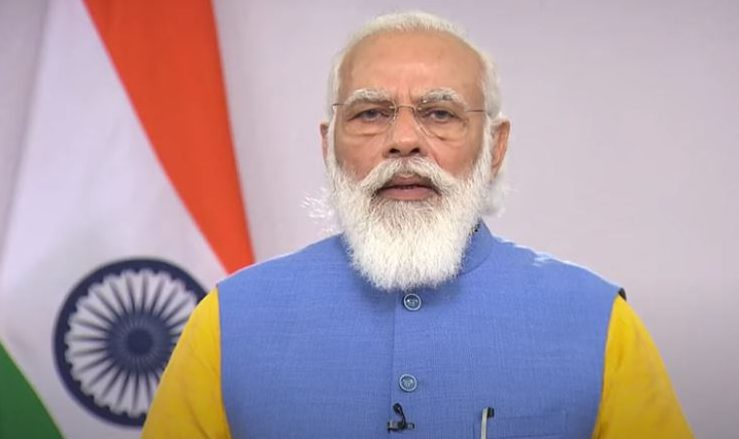- Mr Michael Bloomberg, Thought leaders, Captains of Industry, Distinguished participants of the Bloomberg New Economic Forum.
- I begin by expressing my appreciation for the great work being done by Michael and his team at Bloomberg Philanthropies.
- The support provided by this team in designing of India’s Smart Cities Mission has been very good. Friends, We are at a very important point in our history. More than half of the world’s citizens already live in urban areas.
- Over the next two decades, India and some of the African nations are going to witness the biggest wave of urbanization.
- But the COVID -19 pandemic has posed enormous challenges before the world. It has shown us that cities, which were our growth engines are also our vulnerable zones.
- Many cities around the world declared themselves on the brink of the worst economic downturn since the Great Depression.
- The very things which represented living in a city are facing a question mark. Things like community gatherings, sports activities, education and recreation are not the same as before.
- The biggest question before the entire world is how to restart? The restart will not be possible without a reset. A reset of mindset. A reset of processes. And a reset of practices.
- Friends, I think the historic reconstruction efforts after the two world wars can give us several lessons. Post world wars, the entire world worked on a new world order.
- New protocols were developed and world changed itself. COVID-19 has also given us a similar opportunity to develop new protocols in every field.
- This opportunity should be grabbed by the world if we want to develop resilient systems for the future. We should think on post COVID requirements of the world.
- A good starting point would be the rejuvenation of our urban centres. Friends, Here, I want to share a positive side of Indian cities.
- Indian cities have presented an extra-ordinary example during these tough times. There were world-wide incidents of resistance against the lockdown measures.
- However Indian cities meticulously followed these preventive measures. This is because, for us, the biggest building block of our cities was not concrete, but the community.
- The pandemic has re-emphasised that our biggest resource, as societies and as businesses, is our people.
- The post-Covid world has to be built by nurturing this key and fundamental resource. Cities are vibrant engines of growth. They hold the power to drive this much-needed change.
- People often migrate to cities because cities give them work. But, isn’t it time that we also make cities work for the people?
- Covid-19 has given a chance to accelerate our process of making cities more liveable for people. This includes better housing facilities, better work environment, shorter and efficient travel.
- During the lockdown, many cities saw cleaner lakes & rivers as well as cleaner air. So many of us saw the chirping of birds we never noticed before.
- Can we not build sustainable cities where these features are the norm and not exception? It has been our endeavour in India to build urban centres, which have the amenities of a city but the spirit of a village.
- Friends, During the pandemic, technology has also helped us maintain continuity in our work. Thanks to a simple tool like video-conferencing, I can wrap up many more meetings.
- This has also helped me bridge the distance and talk to all of you. But this also poses an interesting question for a post-Covid world.
- Will we continue with the learnings of the Covid-times like Video-Conferencing? Or will we travel across continents to participate in a conference? Reducing stress on urban systems will depend on our choices.
(The views expressed are the author's own and do not necessarily reflect the position of the organisation)

